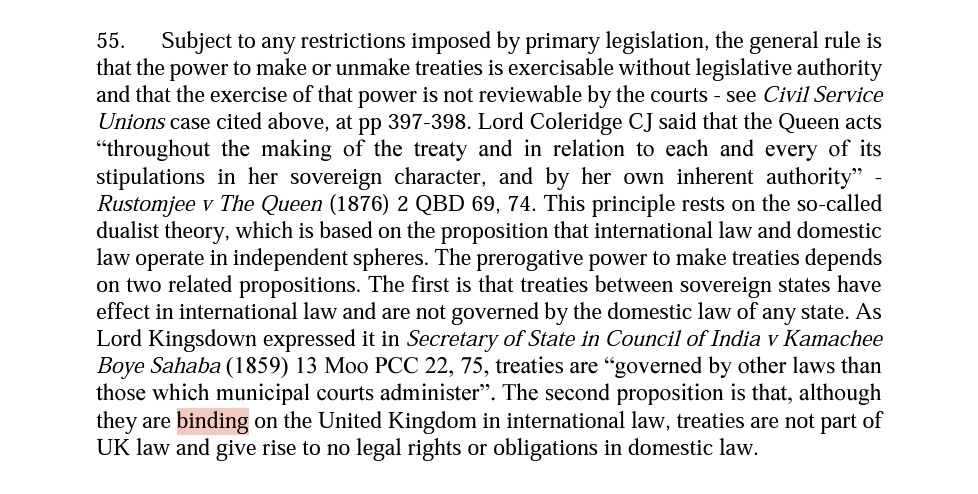
These are the rules on retaliation re 🐟 which France has requested the EU Commission invoke against the UK, assuming that the dispute solely concerns the Channel Islands. However, the retaliation must immediately be followed by a request for arbitration 1/2
https://twitter.com/CSBarnard24/status/1453658690519765001
Retaliation could concern access to fishing, fish tariffs or other tariffs. It must be proportionate. It must be notified a week in advance. An arbitration request has to follow within 2 weeks. Arbitration is fast tracked...> 3/2
https://twitter.com/Llawen/status/1453662694503026690?t=gh7pUbnHydcjoN1RmQUKEw&s=19
4/2 ...The EU retaliation has to stop if arbitrators rule the UK was not in breach. If the retaliation is disproportionate, the UK can retaliate to the same extent, as defined and approved by arbitrators.
(All of this might be instead settled politically, of course)
(All of this might be instead settled politically, of course)
5/2 Arbitrators are taken from names on agreed lists (see Article 752 and my annotation of TCA dispute settlement here - eulawanalysis.blogspot.com/2021/01/analys…) but AFAIK those lists aren't agreed for the TCA yet
https://twitter.com/BrexfastMeans/status/1453667241874976770?t=JE1I7xbps0aOPCYQaVmgFA&s=19
• • •
Missing some Tweet in this thread? You can try to
force a refresh









